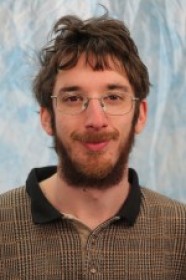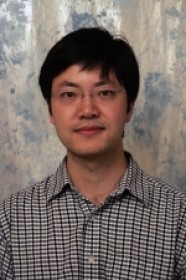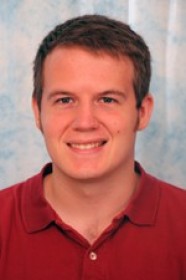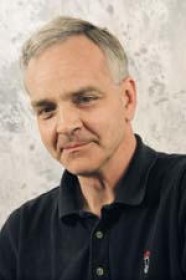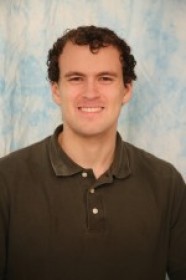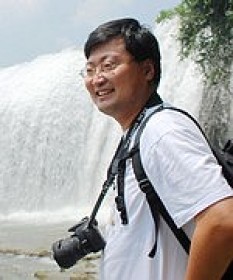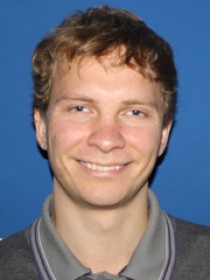Subdimensional Expansion: An Approach to Computationally Tractable Multirobot Path Planning
Event Location: NSH 1305Abstract: Planning optimal paths for large numbers of robots is computationally expensive. In our research, we developed a new framework for multirobot path planning called subdimensional expansion, which initially plans for each robot individually, and then coordinates motion among the robots as needed. More specifically, subdimensional expansion initially creates a one-dimensional search [...]
Distributed Algorithm Design for Constrained Multi-robot Task Assignment
Event Location: GHC 8102Abstract: The task assignment problem is one of the fundamental combinatorial optimization problems. It has been extensively studied in operation research, management science, computer science and robotics. In multi-robot systems (MRS), there are various applications of task assignment, such as environmental monitoring, disaster response, extraterrestrial exploration, sensing data collection and collaborative autonomous [...]
MAP Visibility Estimation for Large-Scale Dynamic 3D Reconstruction
Event Location: NSH 1507Bio: Hanbyul Joo is a Ph.D. student at the Robotics Institute, Carnegie Mellon University, supervised by Prof. Yaser Sheikh. Before joining CMU, he worked as a researcher at ETRI, Korea, and received M.S. and B.S. from KAIST, Korea. He focuses on developing large-scale dynamic reconstruction using about 500 synchronized cameras. He is [...]
Predicting Object Dynamics in Scenes
Event Location: NSH 1507Bio: David Fouhey is a Ph.D. student at the Robotics Institute, Carnegie Mellon University, where he is supervised by Abhinav Gupta and Martial Hebert. He holds an A.B. in Computer Science from Middlebury College. His research addresses a variety of scene understanding tasks in computer vision, with a particular interest in inferring [...]
Trinocular Geometry Revisited
Event Location: NSH 1507Abstract: This is a joint work with J. Ponce. When do the visual rays associated with triplets of point correspondences converge, that is, intersect in a common point? Classical models of trinocular geometry based on the fundamental matrices and trifocal tensor associated with the corresponding cameras only provide partial answers to this [...]
Predicting Failures of Vision Systems
Event Location: NSH 1507Abstract: This is a joint work with P. Zhang, J. Wang, A Farhadi, and D. Parikh. Computer vision systems today fail frequently. They also fail abruptly without warning or explanation. Alleviating the former has been the primary focus of the community. In this work, we hope to draw the community’s attention to [...]
Patch to the Future: Unsupervised Visual Prediction
Event Location: NSH 1507Bio: Jacob Walker is a Ph.D. student at the Robotics Institute, Carnegie Mellon University, where he is supervised by Abhinav Gupta and Martial Hebert. He holds a B.S. in Computer Science, a B.S. in Mathematics, and a B.S. in Economics from Michigan State University. His current research focuses on predicting dynamic events [...]
Complex Non-Rigid Motion 3D Reconstruction by Union of Subspaces
Event Location: NSH 1507Bio: Simon Lucey is an Associate Research Professor within the Robotics Institute at Carnegie Mellon University. Prior to this he was an Australian Research Council (ARC) Future Fellow (2009-2013) and a Principal Research Scientist at Australia’s national science agency the Commonwealth Scientific and Industrial Research Organisation (CSIRO). His research is motivated from [...]
Vision based Micro Intelligent Vehicles
Event Location: NSH 1507Bio: Dr. Ming YANG graduated from Tsinghua University in China. After two-year post-doc experiences in INRIA, he is currently a full professor in the department of Automation in Shanghai Jiao Tong University, and director of Research Institute of Intelligent Vehicles Technology. He has been working in the area of intelligent vehicles for [...]
Articulated People Detection and Pose Estimation
Event Location: NSH 1507Bio: I received M.Sc. in Computer Science from RWTH Aachen University, Germany, in 2010, and joined the group of Bernt Schiele at the Max Planck Institute for Informatics as a PhD student. The focus of my work is mainly on human pose estimation and articulated people detection, while recently I have been [...]
